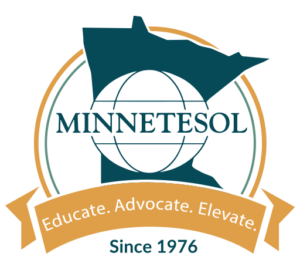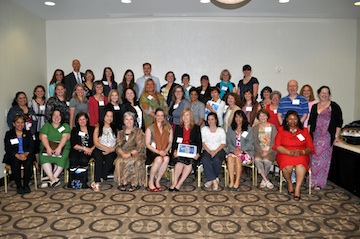ELLs and MinneTESOL members testify at Senate
Testifiers at MN CapitolOn March 13, ELLs and MinneTESOL members testified at both Minnesota State House and Senate Education Committee hearings on upcoming bills to support English Language Learners (ELL) in Minnesota. – See more here.
MinneTESOL’s Advocacy Policy Proposals to the Minnesota Legislature
[download id=”83″]
Did you know the TESOL U.S. Advocacy Action Center now features weekly updates on what’s happening in English language education in Washington, DC? You can view the updates online at http://capwiz.com/tesol
Michelle Benegas Participates in 2013 TESOL Advocacy & Policy Summit
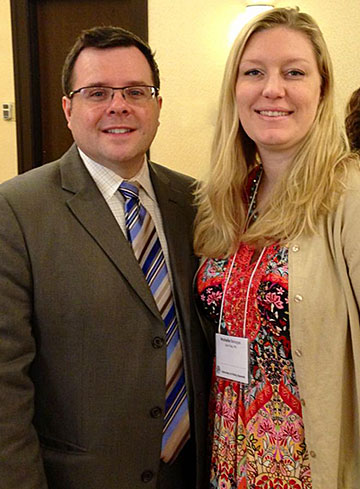
On June 16-18, 2013, I joined more than 50 other members of the TESOL International Association in Washington, DC for the 2013 TESOL Advocacy & Policy Summit. Now in its eighth year, the program featured a full day of issue briefings and activities about education legislation and advocacy, followed by a day of visits to Congressional offices on Capitol Hill. I am honored to share with you what took place at the Summit and my experiences meeting with aides in Minnesota legislative offices.
With representatives from more than 20 US affiliates in attendance, the goals of the Advocacy Summit were not only to lobby on key issues for TESOL, but also to provide an interactive learning experience for participants on elements of advocacy. Prior to the summit, we were sent talking points and background information on key issues so that we could begin to familiarize ourselves with the issues in advance. I considered the topics raised by TESOL in addition to concerns from Minnesota teachers when drafting my talking points. The main issues that TESOL took up in this summit were the impact of the sequester on English Learners and proposed legislation to replace No Child Left Behind (NCLB) under the Elementary and Secondary Education Act (ESEA). I was fortunate to be teaching a course at Hamline University called Advocacy for English Learners, so I had access to a group of reflective practitioners who are deeply invested in the well being and success of ELs. They shared their concerns with me about NCLB, rallied for immigration reform initiatives such as the DREAM Act, and voiced hesitation for other initiatives such as Deferred Action for Childhood Arrivals (DACA).
The first part of the Summit focused on policy issues. Following a welcome reception and overview of policy issues the previous evening, the program started the morning of June 17 with briefs from experts on key issues and legislation. Adam Fernandez, Legislative Associate with the Mexican American Legal Defense and Education Fund (MALDEF) and co-chair of the Hispanic Education Coalition (HEC), began the morning with a discussion of some of the issues in immigration reform and reauthorization of the Elementary and Secondary Education Act (ESEA) impacting ELLs. This was followed by a panel featuring Joanne Urrutia from the Office of English Language Acquisition (OELA) and Supreet Anand of the Title III Group at the U.S. Department of Education who co-presented on the activities of their offices. To close out the morning, Debra Suarez from the Office of Vocational and Adult Education (OVAE) at the US Department of Education provided an update on new initiatives for adult ESL and adult education. I was so grateful to have the opportunity to learn about current and proposed policy from such an impressive panel of experts.
The two main topics presented by the panel were immigration reform and an alternative to NCLB under the ESEA. While I was aware of the DREAM Act. I was surprised to learn about Little DREAMers, a piece of proposed legislation to help undocumented students who are too young to qualify for the DREAM Act but who want to expedite the path to citizenship. Under this legislation, children could become citizens at 15 years of age. Another piece of proposed legislation that was of interest to me is the Student Success Act (SSA), which was drafted by Minnesota’s own Congressman John Kline (R), who is also the Chair of the House Education and Workforce Committee. The SSA recognizes many of the ills of NCLB and proposes an alternative to it. Two topics stand out in this legislation as it relates to ELs. First, it would require all ELs to have IEPs. This is certainly a topic worthy of debate. Secondly, under this legislation, all Title I, II and III funds would be given to districts as a lump sum for them to determine how they believe the funds should be allocated. TESOL sent a letter to John Kline’s office spelling out why our organization is not in support of his proposed bill. See this link if you would like to read the letter: http://www.tesol.org/docs/default-source/advocacy/tesol-comments-on-student-success-act-hr5.pdf?sfvrsn=4
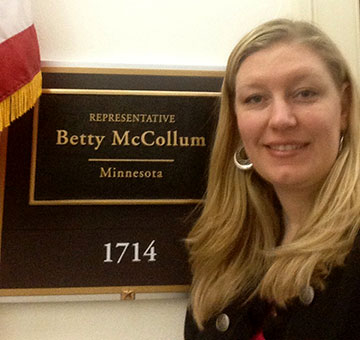
Following these briefings, the Summit shifted its focus to advocacy with a series of activities to help participants learn more about the advocacy process, and prepare for our meetings with members of Congress. We met in seven small groups comprised of roughly seven participants each small to discuss various issues that we face locally. In our groups, we wrote action plans for the issue that we found to be the most pressing in TESOL. Three of the seven groups designed their action plans around advocating for mandatory preparation of all school employees (teachers, administrators and staff) who work with ELs. I was impressed that so many people in the nation had the same concerns. Following our share-out, I approached the organizer, John Segota, and asked if we might examine TESOL’s position statement on the issue to make sure that it is in line with the concerns of the greater TESOL community, since this is an area that I am interested in discussing with members here in Minnesota. Many institutions of teacher preparation are moving toward preparing all teachers to meet the needs of ELs, and it was truly amazing to learn that the issues and concerns that we have in Minnesota are the same as those in places like New Jersey, Texas and California.
On June 18, I set out for Capitol Hill for my four meetings with legislative aides. I started in the Senate office buildings. My first appointment was in Senator Amy Klobuchar’s office (well, in the hall outside of her office). I spoke with her aid about TESOL’s concern about the Student Success Act that was set to be marked up that day. I also shared with her that TESOL is asking that legislators ask that Title I, II and III funds be kept at pre-sequester levels. She relayed that the Senate was in favor of these recommendations and asked that we stay in contact with her. Overall, it was a very positive meeting. My next meeting was with Senator Al Franken’s office. His aid was very attentive to the same requests that I had previously posed to Senator Klobuchar and she also affirmed that Senator Franken was in support of our recommendations.
Following these two meetings in the Senate, I walked to the House buildings for meetings with representatives. My first meeting was with Congressman John Kline’s office. His role as the House Chair of the Education and Workplace Committee places him as a national figure of great influence with regard to education. Of my four meetings, he was the only Republican legislator that I spoke with. His aide brought me into a meeting room with two interns, one of whom was a graduate of the same private high school that I attended. We chatted about our backgrounds and I used our commonality as a spring board to begin our conversation. I shared the shock and dismay that I felt when I began teaching ESL and saw how ELs were educated on our schools. I saw teachers teaching in hallways and closets, photocopies from 20 year old textbooks used as curriculum and a hot lunch that consisted of daily pizza delivery. I also shared how much has changed regarding funding for ELs since I started teaching. One of the positive aspects of NCLB is that funds for English learners were specifically allocated for them. I explained that it is crucial that funding for ELs stay at its current level and not be lumped in with funding for other student populations. I closed by sharing my experience as the parent of a child with special needs. I explained that parents of special needs children are often loud and effective advocates for their children. Parents of ELs usually are not. I called Congressman Kline to take into account the silent voices of immigrant families when considering reforming how funds are allocated to districts. My final Senate meeting was with an aide in Congresswoman McCollum’s office. Her aide was very receptive to the concerns that I expressed and like all of the other aides, she requested that MinneTESOL keep her office in contact if any issues came up that we wanted her to advocate for at the capitol.
Overall, the TESOL Advocacy and Policy Summit was truly transformative. By the end of the event, TESOL members had visited the offices of approximately 100 Representatives and Senators. I am so appreciative that MinneTESOL sent me to learn about policy and to advocate for ELs. Thank you MinneTESOL!
Additional information about the 2013 TESOL Advocacy & Policy Summit is available online at http://www.tesol.org. If you are interested in learning more about your Congressional representatives’ current legislative issues, go the TESOL U.S. Advocacy Action Center at http://capwiz.com/tesol.
Click here to read about TESOL Advocacy Day 2011 and 2012.
Advocacy Issues: Get Involved!
MinneTESOL is working to do more in the area of advocacy for ESL teachers and learners, as well as issues related to our profession such as immigration, language, and education policy. Are you interested in getting involved? We are forming an Advocacy Committee, and we need your help! Please contact Patsy Vinogradov at patsy@minnetesol.org.
Watch this page for more links and information related to advocacy issues. And if you have a link or resource we should share with our membership, please let us know!
Click here to access our ADVOCACY RESOURCES.
Notice from International TESOL
Position Statements:
TESOL Position Statement on EFL for Young Learners available [download id=”19″]
August 2012
TESOL International Association has just published its first Policy Brief on Deferred Action for Childhood Arrivals in the United States. The brief outlines the new policy by the Obama administration, and provides details on where you can find additional information.
The brief is available for download now on the TESOL web site.
July 2009
At its recent meeting, the TESOL Executive Committee approved two position statements for the association:
- Position Statement on the Rights of Deaf Learners to Acquire Full Proficiency in a Native Signed Language
- Position Statement on Independent Short-Term TESL/TEFL Certificate Programs
Copies of each of these position statements are attached; copies are also available online at http://www.tesol.org/PositionStatements.
Minnesota Legislative Reports on World Language
The legislature requires an annual district survey and report on the status of world languages published in February from 2008-2012. The reports are posted on the Minnesota Department of Education Website. There are several other reports with related information. Each report contains an executive summary, background information, research and legislative recommendations.
http://education.state.mn.us/mde/Legislation/Reports_to_Legislature/index.html
Status of K-12 World Languages in Minnesota (2010)
http://www.education.state.mn.us/mdeprod/groups/Communications/documents/Report/016330.pdf
- Statewide world language enrollment by grade-level bands
- Comparison between Minnesota data the National K-12 Foreign Language Survey
- MDE Pilot World Language Grants Summary
- Minnesota World Language Proficiency Certificates
- Minnesota Visiting Teacher Program
TESOL Advocacy Day 2012
By Anne Rogan
On June 18-19th, I took part in TESOL Advocacy Day 2012 in Washington DC. This was the 6th annual TESOL advocacy event put on by TESOL in an effort to lobby for ELL needs at the national level.
Over 40 teachers from 23 states took part in this event. The first day was spent training and preparing for our meetings on capitol hill. We had several speakers including TESOL’s president and advocacy day participant, Suzanne Panferov. Other speakers included; Rosa Aronson (Executive Director- TESOL), Livia Lam (Education and Workforce Committee), Dr. Rosalinda Barrera (OELA), and various other staff members from the offices of Senators and Representatives who are vocal supporters of ELL issues. The second day was spent conducting meetings with legislatives offices representing Minnesota. I met with staffers in the offices of Senator Amy Klobuchar, Senator Al Franken, Chairman John Kline and Representative Eric Paulsen. All four of my meetings were enlightening, empowering and successful. The focus of our discussions was on the reauthorization of ESEA (No Child Left Behind) and the issues TESOL and ELL advocates have with the current law and proposed updates to the law. We also talked about related issues such as early childhood education, adult education and the Dream Act, including the President’s recent executive order affecting children of undocumented immigrants.
TESOL Advocacy Day 2011
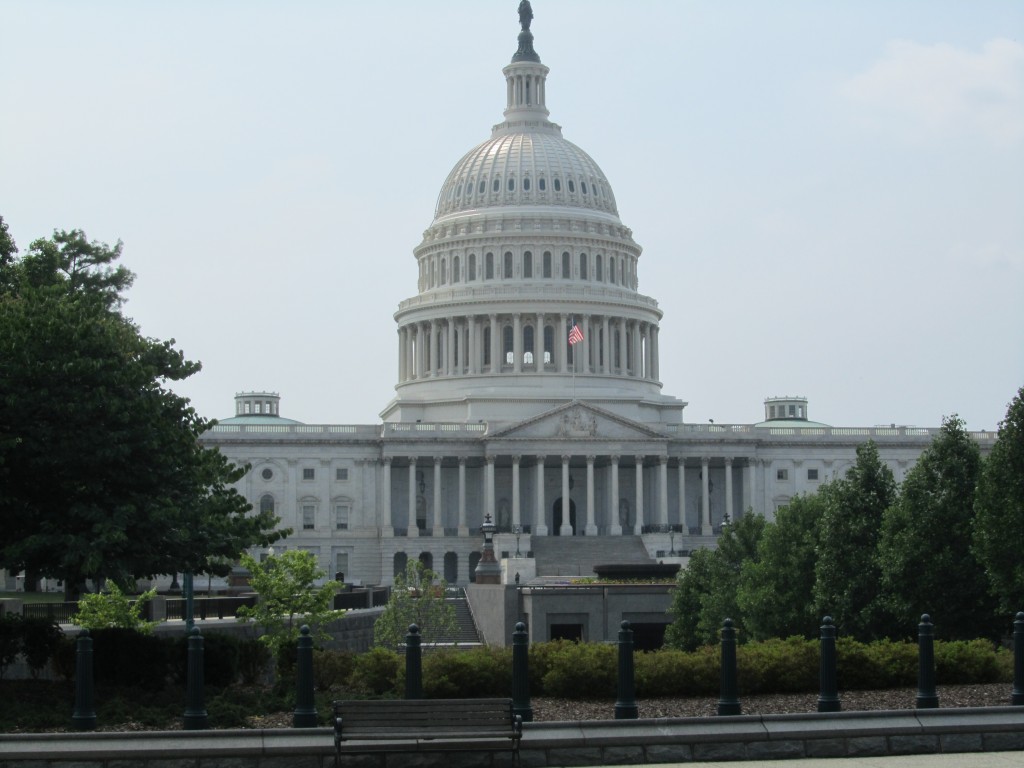 On June 6-7, 2011, TESOL (the international TESOL organization of which MinneTESOL is an affiliate) hosted its annual day on the hill, allowing dozens of TESOL professionals around the country to talk with their representatives about key issues. To see an article with pictures and video clips about this year’s event, please click HERE and read a write-up from John Segota, TESOL’s Director of Advocacy, Standards, and Professional Relations.
On June 6-7, 2011, TESOL (the international TESOL organization of which MinneTESOL is an affiliate) hosted its annual day on the hill, allowing dozens of TESOL professionals around the country to talk with their representatives about key issues. To see an article with pictures and video clips about this year’s event, please click HERE and read a write-up from John Segota, TESOL’s Director of Advocacy, Standards, and Professional Relations.
Susan Ranney, a University of Minnesota professor in the Curriculum & Instruction Department and a long-time MinneTESOL member and leader, went to Washington to represent MinneTESOL. Keep reading to hear her perspective as a TESOL Advocacy Day participant!
MinneTESOL participates in TESOL Advocacy Day 2011
My experience at TESOL Advocacy Day was a fantastic learning and political action experience. I learned that citizens can have a voice in developing policy and that legislators want to hear about issues in their states. I also learned about how to effectively communicate with legislators and about current perspectives on NCLB from TESOL and other education groups and officials. I left feeling inspired to get more people involved in advocacy, and I hope that some of you will be interested in taking part in some way. Please read on for details on how advocacy works and what some current perspectives are on reauthorization of the ESEA (NCLB) legislation.
TESOL Advocacy Day goals and format
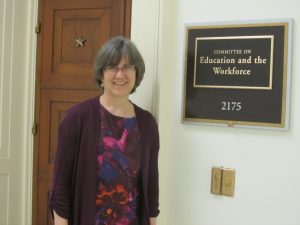 I was honored to be asked to serve as the MinneTESOL representative at TESOL Advocacy Day 2011. On June 6-7, I joined over 40 other TESOL members representing over 25 U.S. based affiliates in Washington, DC. This year was the sixth consecutive year for TESOL Advocacy Day, and featured new format with a full day of issue briefings and activities around education legislation and advocacy, followed by a full day of visits to Congressional offices on Capitol Hill. By the end of the event, I had visited with staff of four members of the Minnesota Congressional delegation and the group overall had visited the offices of more than 100 Representatives and Senators.
I was honored to be asked to serve as the MinneTESOL representative at TESOL Advocacy Day 2011. On June 6-7, I joined over 40 other TESOL members representing over 25 U.S. based affiliates in Washington, DC. This year was the sixth consecutive year for TESOL Advocacy Day, and featured new format with a full day of issue briefings and activities around education legislation and advocacy, followed by a full day of visits to Congressional offices on Capitol Hill. By the end of the event, I had visited with staff of four members of the Minnesota Congressional delegation and the group overall had visited the offices of more than 100 Representatives and Senators.
Responding to recent action in Congress and from the White House, TESOL Advocacy Day 2011 was focused on the reauthorization of the Elementary and Secondary Education Act (ESEA), currently revised as No Child Left Behind (NCLB). To maximize the impact of TESOL Advocacy Day, key members of Congress serving on the education and appropriations committees in the U.S. Senate and House of Representatives were identified for meetings. As the MinneTESOL representative, I was asked to particularly try to meet with Sen. Al Franken, who is a member of the Senate Education Committee, and with Rep. John Kline, the Chair of the Education and Workforce Committee in the House of Representatives. TESOL also suggested trying to get meetings with Rep. Betty McCollum and Sen. Amy Klobuchar. I was able to meet with legislative aides in all these offices.
Preparing for a meeting with a member of Congress
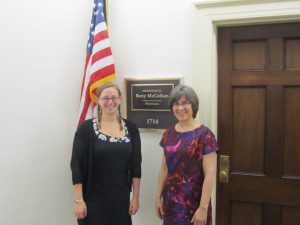 Getting the meetings was the first lesson of the experience. First, it was new to me to even think about asking a legislator to meet with me, but I discovered that this is a right we have in our democracy. That doesn’t mean that it is easy; legislators receive a large number of meeting requests so you need to send requests well in advance, yet responses may come at the last minute. We were encouraged to be persistent and also not to be disappointed if we were given a meeting with an aide rather than the Representative or Senator. It took online requests, some phone calls, and many emails to set up the meetings. I found that “constituent” seemed to be a magic word, although I was able to meet with people in McCollum’s and Kline’s offices without living in their districts.
Getting the meetings was the first lesson of the experience. First, it was new to me to even think about asking a legislator to meet with me, but I discovered that this is a right we have in our democracy. That doesn’t mean that it is easy; legislators receive a large number of meeting requests so you need to send requests well in advance, yet responses may come at the last minute. We were encouraged to be persistent and also not to be disappointed if we were given a meeting with an aide rather than the Representative or Senator. It took online requests, some phone calls, and many emails to set up the meetings. I found that “constituent” seemed to be a magic word, although I was able to meet with people in McCollum’s and Kline’s offices without living in their districts.
In preparation for this trip, I read materials provided by TESOL about ESEA reauthorization. Since they said that stories from our states are useful, I also contacted people at the Minnesota Department of Education, colleagues at the University of Minnesota, ELL district coordinators, and some K-12 teachers. I learned that people gave mixed reviews to NCLB. As Patty Richards in District 196 put it: “I always say ‘The good thing about NCLB was that it put ELLs above the radar’ and ‘The bad thing about NCLB is that it put ELLs above the radar.'” This ambivalence was a common theme that I heard: the attention to ELL issues has been useful, but the punitive nature of the law has been harmful. Testing was the big complaint; the overtesting and the interpretation of results are harmful. I also heard stories about the impact of the use of test scores, such as a Somali girl in Rochester who was not allowed to graduate from high school despite passing all her required courses due to falling one point short on the reading test. I learned from people at the MDE that this was more of a local issue than with the federal law, as states and districts make policies regarding how the tests are used for graduation decisions. Overall, though, the message I took with me was a plea for change in the testing and accountability measures in the law.
TESOL training on advocacy and NCLB issues
The first day was an intense learning experience, with sessions from 7:30 am to 5:00 pm. We were welcomed by TESOL Past President Brock Brady, TESOL Executive Director Rosa Aronson, John Segota, Director of Advocacy, Standards, and Professional Relations, and Ellen Fern of Washington Partners, LLC, TESOL’s legislative consultants. Then we had our first glimpse into the workings of Congress as we had a briefing from two Congressional staff working from opposite sides of the aisle on ESEA reauthorization and the key issues under debate, as well as presentations by representatives from the National Education Association, and the National Association of Secondary School Principals.
What I found interesting about all the speakers was that of all the different perspectives represented, no one was advocating for keeping NCLB as it currently exists. The burdens of the testing requirements seem to be widely recognized and condemned from all political perspectives. Also, in spite of the bitter partisan divisions in our country now, the legislative aides working for Democrats and Republicans had a good working relationship and seemed dedicated to developing good policy rather than making political points. Some of the ideas for changes in the law were finding ways to make it more flexible, changing ways of evaluating teaching, providing teacher incentives and teacher preparation.
Dr. Rosalinda Barrera, Assistant Deputy Secretary and Director of the Office of English Language Acquisition (OELA) at the US Department of Education, laid out the Obama administration’s goals as supporting early learning through post-secondary education. They want to end the punitive nature of NCLB and strengthen ESL by working on ELP assessment, developing systems to evaluate programs, and grants for innovative programs such as dual language education. They recognize the need for more valid and reliable assessments for ELs, the loss of instructional time due to testing, the need for all teachers to learn strategies for teaching ELs, and the need for greater family engagement. Dr. Barrera also voiced support for the DREAM Act, in order to stop squandering our nation’s bilingual resources. It was encouraging to hear someone in power expressing support for these policies, but she also said something that surprised me. In speaking about the political system, Barrera said “You have more power than I have – Use it!” It drove home the point that in a democracy, the electorate has more power than bureaucrats in setting policy. We tend to view Washington as a remote place where people think up policies that govern our lives, but our voices as citizens do matter.
In the afternoon sessions that day, we enjoyed some interactive activities such as a role play of the process of passing legislation in Congress and a game that highlighted the use of political capital that comes from constituent letters. Later, John Segota and Ellen Fern gave us very useful information about what to expect in our meetings on the Hill and how to prepare for them. We learned that it helps to build relationships with people in lawmakers’ offices and to become resources to the them on topics of our expertise. Also, legislators like to hear about federal money coming into the state and if it has been worthwhile. We were advised to give them stories about our EL students and their families, as people in Washington don’t know about the variety of students we see or what the issues are on the ground. From the TESOL perspective, there is a danger of the pendulum swinging too far in the opposite direction as NCLB is revised, and losing the benefit of having the federal guidelines that lead states to pay more attention to EL education than they may have done otherwise. They also recommended telling representatives about the EL situation in our states and making the point that investing in education now saves money later. On the practical level, we were told to be prepared to talk for about 15 minutes, to leave plenty of time for lines and security (going through metal detectors in each office building), and to follow up with a thank you by email and offer to serve as a resource.
This was all vital information that helped me reshape my approach to the meetings. I realized that the message about the need to change testing requirements of NCLB had to be balanced with a discussion of why we still need federal guidelines and support. After a reception for the group and dinner with several other participants, I sat down to write my talking points and prepare for a day of meetings. I decided to add information about the federal grants that I was familiar with – TEAM UP, a professional development grant directed by my UM colleague Connie Walker and coordinated by Tina Edstam, and the MDE Refugee grant that supported tutoring programs I had evaluated some years back. I also included points about the number and spread of ELs in Minnesota, the particular needs of our large population of LFS students, the need to change the testing requirements in NCLB but to keep guidelines that focus attention on ELs, the length of time and instruction it takes for ELs to develop academic language, and the need for professional development for teachers. I used the story of the graduation problem in Rochester as evidence that local governments don’t always make the wisest policies. I ended my talking points by asking for support for the DREAM act.
Talking to people on Capitol Hill
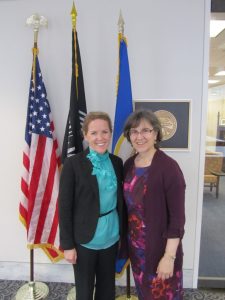 On June 7, I set out by metro to Capitol Hill and went first to Rep. Betty McCollum’s office. I was a bit nervous as I waited for the appointment, having never done this type of political action before. Rep. McCollum was on a trip to the Mideast but I met with a young woman in her office and she was very interested in listening to my points. She assured me that Rep. McCollum strongly supports the DREAM Act. Getting through the first appointment with an empathetic listener built my confidence for the rest of the day. The next appointment was with an aide to Sen. Amy Klobuchar, and again it was a pleasant conversation, with the aide mainly listening and taking notes on my points, and assuring me that Sen. Klobuchar recognizes the importance of our EL students as our future workforce. The third meeting was perhaps the most interesting and important meeting of the day, as it was with a staffer for Rep. John Kline, who as Chair of the Education and Workforce Committee for the House is one of the most influential congressmen on these issues. This session involved more of a discussion of the issues, and some pushback against my ideas for federal guidelines and funding for professional development. According to the staffer, Rep. Kline is interested in prioritizing local needs and in getting the federal government out of mandating policies. She questioned the value of professional development funding, saying that they’ve been told that a lot of professional development funds are not used effectively. It was very helpful to be able to tell her about TEAM UP and illustrate what good professional development can do to improve education for ELs, and we both agreed that an approach that is sustained over time can be more effective than one-day workshops. We also agreed on the advisability of extending the EL category to include those no longer receiving services in order to capture their growth in the accountability measures, and we talked about alternatives to standardized tests, such as multiple types of assessments. In our wrap-up session later, the TESOL people were very interested in hearing about this meeting and in learning that there is some opening for the types of thinking that they are advocating. The last meeting of the day was with an aide to Sen. Al Franken, who happens to be on the education committee in the Senate. She conveyed Sen. Franken’s desire to see the testing requirements of NCLB changed and she was interested in learning about what happens with ELs who arrive in Minnesota at high school age with limited formal schooling.
On June 7, I set out by metro to Capitol Hill and went first to Rep. Betty McCollum’s office. I was a bit nervous as I waited for the appointment, having never done this type of political action before. Rep. McCollum was on a trip to the Mideast but I met with a young woman in her office and she was very interested in listening to my points. She assured me that Rep. McCollum strongly supports the DREAM Act. Getting through the first appointment with an empathetic listener built my confidence for the rest of the day. The next appointment was with an aide to Sen. Amy Klobuchar, and again it was a pleasant conversation, with the aide mainly listening and taking notes on my points, and assuring me that Sen. Klobuchar recognizes the importance of our EL students as our future workforce. The third meeting was perhaps the most interesting and important meeting of the day, as it was with a staffer for Rep. John Kline, who as Chair of the Education and Workforce Committee for the House is one of the most influential congressmen on these issues. This session involved more of a discussion of the issues, and some pushback against my ideas for federal guidelines and funding for professional development. According to the staffer, Rep. Kline is interested in prioritizing local needs and in getting the federal government out of mandating policies. She questioned the value of professional development funding, saying that they’ve been told that a lot of professional development funds are not used effectively. It was very helpful to be able to tell her about TEAM UP and illustrate what good professional development can do to improve education for ELs, and we both agreed that an approach that is sustained over time can be more effective than one-day workshops. We also agreed on the advisability of extending the EL category to include those no longer receiving services in order to capture their growth in the accountability measures, and we talked about alternatives to standardized tests, such as multiple types of assessments. In our wrap-up session later, the TESOL people were very interested in hearing about this meeting and in learning that there is some opening for the types of thinking that they are advocating. The last meeting of the day was with an aide to Sen. Al Franken, who happens to be on the education committee in the Senate. She conveyed Sen. Franken’s desire to see the testing requirements of NCLB changed and she was interested in learning about what happens with ELs who arrive in Minnesota at high school age with limited formal schooling.
What can we do in Minnesota?
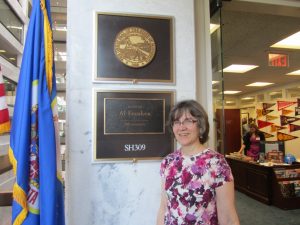 After this exhilarating day, it was great to reconnect with others over dinner and to hear about their experiences. The repeated theme was that people felt they had made their voices heard and had learned a lot in the process. From this wonderful group of TESOL members from all parts of the U.S., I learned that we have connections with people around the country (The Ohio members told me that their Somali students had moved to Minnesota; teachers in Oregon are feeling the same pressures about teachers being judged based on student test scores, etc.), and that other affiliates have advocacy representatives and have done some actions. For example, the Massachusetts affiliate organized an action at their state legislature to advocate for more flexibility in offering bilingual programs, and wore a variety of ill-fitting T-shirts that said “One size does not fit all” (The measure passed!). I felt that the day at the Hill was just the beginning, and I would love to see MinneTESOL become more involved in advocacy at both the state and the federal level. One creative idea that came up in our discussions was to get our ELs to take part in meeting with legislators, to give the legislators a chance to hear first- hand about their experiences. Could this be something for MinneTESOL to organize? After learning about how important Rep. Kline is in educational policy, I would love to involve MinneTESOL members who live in his district to try to meet with him and inform him on ESL issues. You don’t have to travel to Washington to be active: We can work in St Paul at the state level and we can contact our federal representatives through their local offices.
After this exhilarating day, it was great to reconnect with others over dinner and to hear about their experiences. The repeated theme was that people felt they had made their voices heard and had learned a lot in the process. From this wonderful group of TESOL members from all parts of the U.S., I learned that we have connections with people around the country (The Ohio members told me that their Somali students had moved to Minnesota; teachers in Oregon are feeling the same pressures about teachers being judged based on student test scores, etc.), and that other affiliates have advocacy representatives and have done some actions. For example, the Massachusetts affiliate organized an action at their state legislature to advocate for more flexibility in offering bilingual programs, and wore a variety of ill-fitting T-shirts that said “One size does not fit all” (The measure passed!). I felt that the day at the Hill was just the beginning, and I would love to see MinneTESOL become more involved in advocacy at both the state and the federal level. One creative idea that came up in our discussions was to get our ELs to take part in meeting with legislators, to give the legislators a chance to hear first- hand about their experiences. Could this be something for MinneTESOL to organize? After learning about how important Rep. Kline is in educational policy, I would love to involve MinneTESOL members who live in his district to try to meet with him and inform him on ESL issues. You don’t have to travel to Washington to be active: We can work in St Paul at the state level and we can contact our federal representatives through their local offices.
The lessons that I took from Washington are that citizens really do have a voice in our democracy if we are willing to work at it and make our voices heard. I hope to present more on this experience at the MinneTESOL fall conference and I would love to see more people become involved in advocacy. If you would like more information about TESOL Advocacy Day, look for it on the TESOL web site at http://www.tesol.org and to learn more about your Congressional representatives, and the legislative issues TESOL is tracking, go the TESOL U.S. Advocacy Action Center at http://capwiz.com/tesol. And please respond when MinneTESOL asks for people to become engaged in advocacy!
****************************************************************************************************
